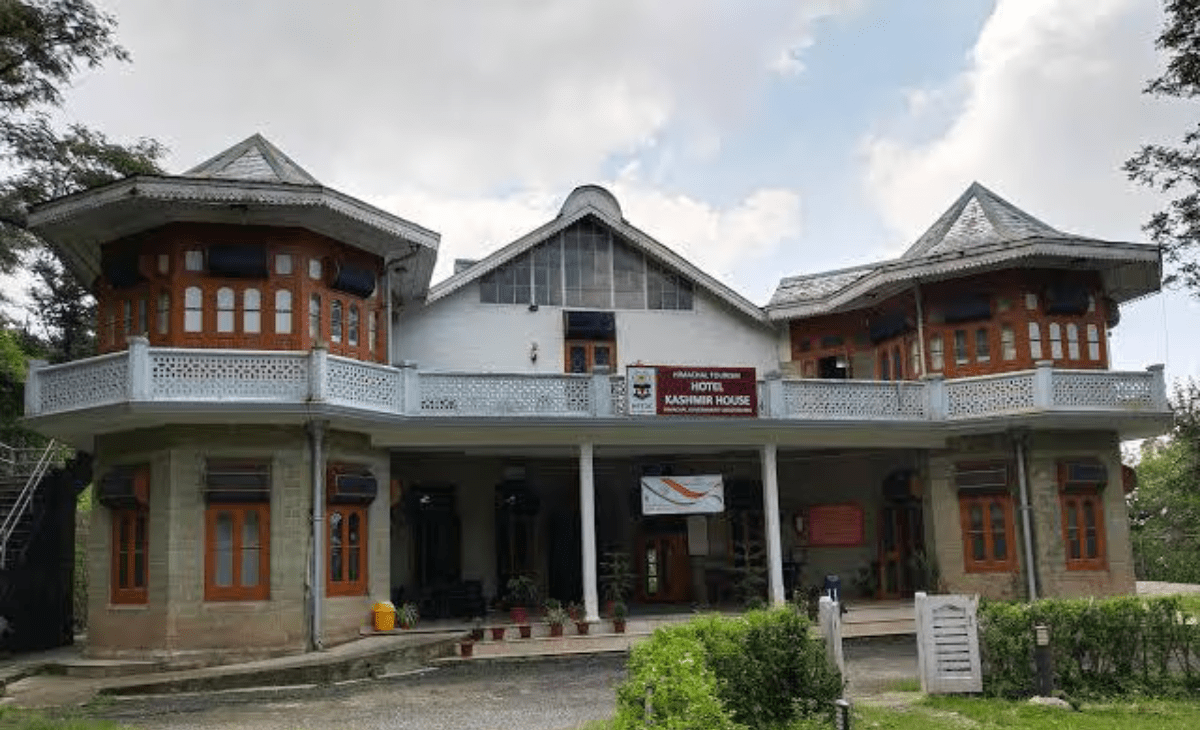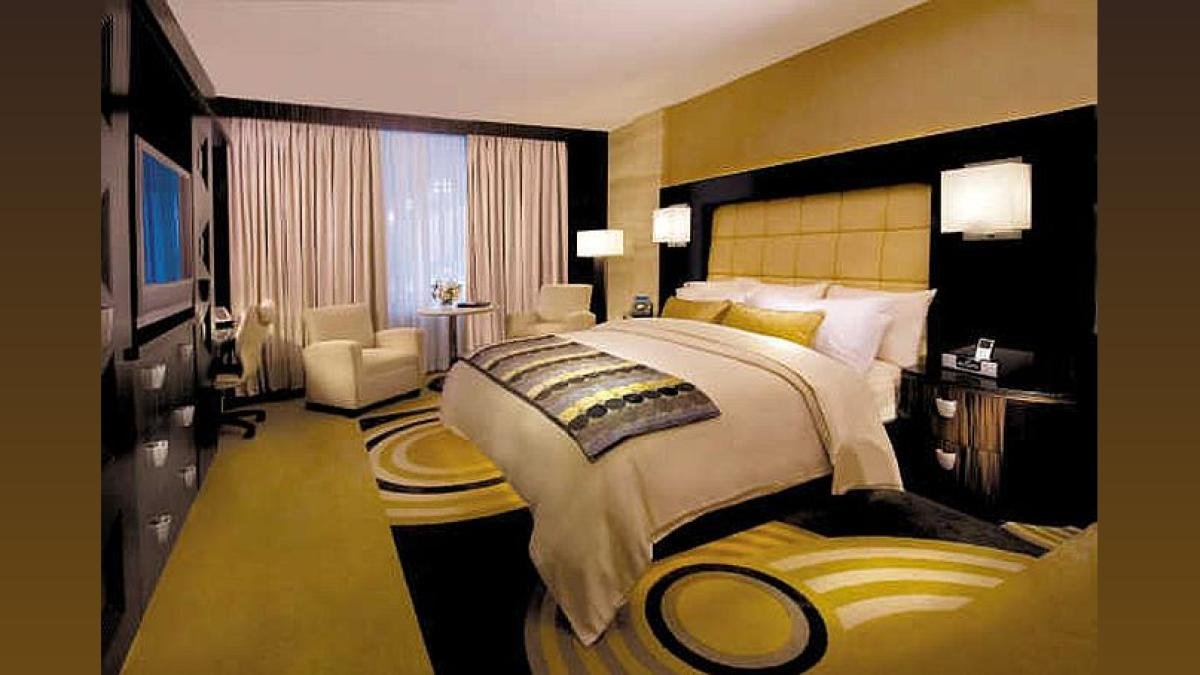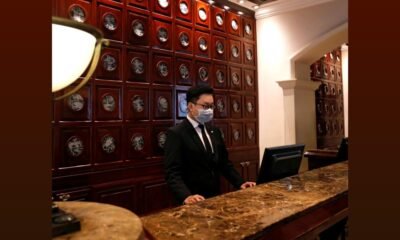Hotels & Accommodations
Priyanka Kumari Joins Stone Wood Hotels & Resorts as Corporate Training Manager, ETHospitalityWorld

Stone Wood Hotels & Resorts announced the appointment of Priyanka Kumari as its corporate training manager. Kumari brings with her a decade of robust experience in the hospitality industry, having held impactful roles at multiple hotel brands such as Marriott, Wyndham and Carlson Rezidor. Her career is distinguished by her ability to design and implement training programs that not only elevate service standards but also foster a culture of continuous learning and team collaboration.
As corporate training manager, Kumari is dedicated to empowering teams across all Stone Wood properties to deliver exceptional guest experiences. Her role will encompass developing standardised training protocols, implementing best practices, and ensuring consistent service delivery standards that reflect the company’s commitment to hospitality excellence. Her experience with premium hospitality brands provides her with valuable insights into maintaining high service standards while fostering employee development and satisfaction.
Kumari’s experience spans a wide range of hospitality operations, equipping her with a nuanced understanding of both front-line and managerial training needs. She is recognised for her skill in developing tailored training modules that directly contribute to improved guest satisfaction and business performance. Her passion for team development and her approachable leadership style have consistently empowered hospitality professionals to excel in dynamic, guest-focused environments. Outside of her professional pursuits, Priyanka enjoys exploring new places and connecting with people from diverse backgrounds, further enriching her perspective on guest service and team engagement.”We are pleased to welcome Priyanka Kumari to our leadership team as we continue to focus on delivering exceptional guest experiences across all our properties. Her extensive experience with leading hospitality brands and proven expertise in training and team development make her the ideal candidate to elevate our service standards. Priyanka’s dedication to empowering teams and her track record in crafting effective training programs will be instrumental in maintaining our reputation for excellence as we grow,” said Shikhar Kumar, managing director, Stone Wood Hotels & Resorts.
Hotels & Accommodations
Tata Motors Group global sales up 26 percent in March 2012

April 16: The Tata Motors Group has reported global wholesales, including Jaguar Land Rover, of 1,39,655 units in March 2012, higher by 26 percent over March 2011. Cumulative sales for the fiscal are 1,252,173, higher by 16 percent compared to the corresponding period in 2010-11.
Global sales of all commercial vehicles – Tata, Tata Daewoo and the Tata Hispano Carrocera range – were 63,791 units in March 2012, a growth of 12 percent. Cumulative sales for the fiscal are 599,927 units, an increase of 17 percent.
Global sales of all passenger vehicles were 75,864 units in March 2012, higher by 41 percent. Cumulative sales for the fiscal are 652,246 units, up 14 percent.
Global sales of Tata passenger vehicles and the distribution offtake in India of Fiat cars were 39,393 units for the month, higher by 32 percent over March 2011. Cumulative sales for the fiscal are 337,813 units, higher by 3 percent over March 2011.
Global sales of Jaguar Land Rover in March 2012 comprised 36,471 vehicles, higher by 51 percent over March 2011. Jaguar sales for the month were 5,343 units, higher by 42 percent, while Land Rover sales were 31,128 units, up 53 percent. Cumulative sales of Jaguar Land Rover for the fiscal were 314,433 units, higher by 29 percent. Cumulative sales of Jaguar were 54,039 units, higher by 2 percent, while cumulative sales of Land Rover were 260,394 units, higher by 37 percent.
Global retail sales in March 2012 were the highest monthly total ever for Jaguar Land Rover together and also the Land Rover brand individually.
Hotels & Accommodations
Hotels for Corporates, Dilapidated Rest Houses for the Common Man?

As the government offers rundown rest houses to the public, questions rise over its ability to manage even basic tourist infrastructure.
Munish Sood
Shimla
In a move that has drawn both confusion and criticism, the Himachal Pradesh government has recently announced that state-run rest houses — long reserved for officials and VIPs — will now be open to the general public. This follows a separate decision by the government to hand over several loss-making tourism department hotels to private operators. Initially, 14 hotels were listed for privatization, but public pressure and political resistance led to 6 being pulled back from the process.
While the announcement to open rest houses to citizens might sound progressive, on the ground, the reality paints a bleak picture.
Rest Houses: A Crumbling Legacy
Most government rest houses across Himachal Pradesh are in dilapidated condition. With peeling walls, clogged drains, smelly bathrooms, unchanged linen, and absent hygiene protocols, they stand as monuments to neglect. Many lack even the most basic facilities such as proper beds, clean washrooms, or consistent electricity and water supply.
“There is no system. The linen hasn’t been changed for weeks, maybe months. You walk into a room and are greeted by a foul stench, damp mattresses, and often, dead insects. And God forbid if you ask for cleaning — the staff often behave as if they’re doing you a favour,” says Shivali Thakur, an avid solo traveller who recently stayed at a forest rest house near Palampur.
‘We can’t run hotels, how will we manage rest houses?’
Ironically, the same government that has admitted failure in managing full-service tourism hotels is now promising the general public access to properties that are in even worse shape.
A senior HPTDC employee, speaking on condition of anonymity, said:
“We have failed to maintain well-staffed and well-located tourism hotels. There is neither budget nor manpower to run rest houses, most of which are tucked away in remote areas. One caretaker, a cook, and occasionally a cleaner — that’s the entire staff structure. What kind of service can we offer to tourists in such a setup?”
Misuse, Mismanagement, and Chamchagiri
Beyond poor maintenance, many rest houses have become unofficial hangout spots for political loyalists and departmental favourites.
“These places are hardly ever available to common people even now,” says Netar Ram, a home stay owner in Kullu.
“They’re misused as party venues by aides of local politicians or as vacation spots for friends and families of bureaucrats. Opening them to the public sounds nice on paper, but unless the entire structure is overhauled, it’ll just remain a sham.”
According to locals, weekend “parties” with loud music, alcohol, and even unauthorized guests are common. Rooms are often blocked in advance for VIP associates, while genuine tourists are turned away with vague excuses about “no availability” or “maintenance issues.”
Two Policies, Two Faces
On one hand, the government is stepping back from running its own hotels — citing losses and inefficiency — and handing them to private players. On the other, it wants to directly manage rest houses and offer hospitality to citizens with almost no staff, no budget, and no training.
This policy contradiction has confused experts and angered tourism stakeholders.
“How can a government that can’t run a full-fledged hotel, with proper systems in place, expect to manage rest houses that are barely functional? What kind of service are we promising? This is not tourism development, it’s tourism dilution,” said a senior travel consultant based in Shimla.
A Call for Urgent Review
If the Himachal Pradesh government truly wishes to democratize tourism and offer affordable accommodation to the public, the focus must shift to urgent refurbishment, transparent booking systems, training of staff, and accountability in maintenance.
Otherwise, this ambitious move might just turn into another populist gimmick — a photo-op announcement that collapses under its own contradictions.
Hotels & Accommodations
Roseate Hotels Expands Portfolio, Eyes Dubai, Europe: Rediff Moneynews

Roseate Hotels & Resorts plans to diversify with managed properties, expand to Dubai, Italy, France, Switzerland, and improve Indian hospitality.
In an interview to PTI, Kapoor emphasised upon the need to market India better, streamline visa processes and improve the working conditions for hospitality sector employees in terms of rationalising their working hours and better wages, as key to attracting more foreign tourists to India and having a better talent pool for the hotel industry.
The Roseate Hotels and Resorts CEO also sought rationalisation of GST rates for the hospitality sector and lowering the number of licences required for hotels to reduce the compliance burden.
“Yes the focus is very heavily on India. We definitely want to be in the upscale market and would like to grow in tier 2 and tier 3 cities also. For us the most important thing is the location of our hotels. We are getting good proposals from the owners and owning partners who are keen to partner with us in terms of management agreements. So we are also looking into that,” Kapoor told PTI.
The Roseate Hotels and Resorts CEO further elaborated on its international expansion plans.
“We are very keen to operate hotels in the United Kingdom, we have five out there. The Noida hotel at the Jewar airport terminal should open in a year’s time. We will also expand our Rishikesh property post this monsoon.
We have a land bank in Goa so we should also get into the development of the Goa property by this year-end. We are very keen to get into places like Dubai and the key markets of Europe. We are definitely open to places like Italy, France and Switzerland,” Kapoor said.
He informed that Roseate was looking at properties having anywhere between 30 to 250 rooms.
“One thing is very clear, we are not going to be a Shaadi or a wedding hotel. We don’t want to have hotels with 300 and 500 rooms. So we are very clear on that part.
Anything ranges between a 30-room hotel to a 250-room hotel we are very keen to get into that segment,” Kapoor said.
He stressed that the working conditions for the employees first of all in the hotels needs to get much better.
“When I am talking about working conditions, I am talking specifically about working hours, that needs to be rationalised. Second, the pay needs to be way high (considering) the amount of time, energy, the employees spend in the organisation,” the Roseate Hotels and Resorts CEO said.
He asserted that “a lot needs to be done” in terms of marketing India better, urging to look at examples of countries like Dubai, Singapore and Vietnam to attract more foreign tourists to the country.
-

 Mergers & Acquisitions1 week ago
Mergers & Acquisitions1 week agoHow Elon Musk’s rogue Grok chatbot became a cautionary AI tale
-

 Mergers & Acquisitions1 week ago
Mergers & Acquisitions1 week agoAmazon weighs further investment in Anthropic to deepen AI alliance
-

 Asia Travel Pulse2 weeks ago
Asia Travel Pulse2 weeks agoLooking For Adventure In Asia? Here Are 7 Epic Destinations You Need To Experience At Least Once – Zee News
-

 Mergers & Acquisitions1 week ago
Mergers & Acquisitions1 week agoUK crime agency arrests 4 people over cyber attacks on retailers
-

 Brand Stories2 weeks ago
Brand Stories2 weeks agoVoice AI Startup ElevenLabs Plans to Add Hubs Around the World
-

 AI in Travel2 weeks ago
AI in Travel2 weeks ago‘Will AI take my job?’ A trip to a Beijing fortune-telling bar to see what lies ahead | China
-

 Mergers & Acquisitions1 week ago
Mergers & Acquisitions1 week agoEU pushes ahead with AI code of practice
-

 Mergers & Acquisitions2 weeks ago
Mergers & Acquisitions2 weeks agoChatGPT — the last of the great romantics
-

 The Travel Revolution of Our Era1 month ago
The Travel Revolution of Our Era1 month agoCheQin.ai Redefines Hotel Booking with Zero-Commission Model
-

 Mergers & Acquisitions1 week ago
Mergers & Acquisitions1 week agoHumans must remain at the heart of the AI story













You must be logged in to post a comment Login